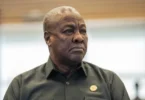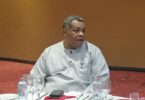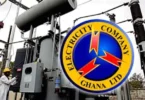Quality Civil Service according to the Chief of Staff, Mrs. Akosua Freema Opare is the key to the government quest to achieve its “Ghana Beyond Aid” agenda.
Therefore re-affirmed government commitment to Civil Service in its quest to deliver cutting-edge service to the ordinary Ghanaians.
This was contained in a speech read on her behalf at a lecture to mark this year’s Civil Service Week and Awards Night in Accra under the theme: ” Improving Service Delivery to Promote Ghana Beyond Aid”.
According to the Chief of Staff, more resources have been provided by government since 2017 which led to the training and promotion of about 8,000 civil service staff.
The “Ghana Beyond Aid” agenda by government is to develop an awakening spirit in all Ghanaians that, the country needs to be self-sufficient for national development.
To her, the theme enjoined the civil service to give of their best to improve service delivery.
“To be able to survive in this competitive global environment, the service must witness a positive change in attitude and behavior,” she acknowledged.
Therefore with the introduction of the Right to Information, she opined that, it is expected that all Ministries and Departments would use all available and enhanced electronic channels to provide timely and adequate information to its clients.
Over the years, Mrs. Opare stated that, the Service had witnessed various reforms including the Civil Service Reform Programme (1987-1993) and the Civil Service Improvement Programme (1993-2014), aimed at improving service delivery.
Adding that, the launching of the National Public Sector Reform Strategy (2018-2023) by government is to improve performance in the public sector, hence responsive to the needs of the citizens and private sector for sustained development.
The Chief of Staff used the ocassion to charge civil servants to cease to be self-serving and focus on the delivery of effective public services to boost private sector performance and create jobs and wealth for the citizenry.
On his part, the Technical Advisor of the Ministry of Local Government and Rural Development, Dr Eric Oduro Osae called on the public to come out massively to vote in favour of District Level Elections in the upcoming referendum.
Pointing out that voting, which is slated for December 17, would help enhance and strengthen the decentralization process of governance in the country.
Hence urged citizens to massively vote “YES”, for political parties to participate in the election of Metropolitan, Municipal and District Chief Executives (MMDCEs) in their various constituencies to help strengthen democracy in the country.
The Electoral Commission of Ghana would in December, 2019 conduct the district level elections that, it would require citizens to vote for their Unit Committee Chairs, their Assembly members as well as Vote “Yes” or “No” to support or not to support, the participation of political parties in the election of MMDCEs.
Dr. Osae explaining further stated that, 40 per cent out of the total registered voters must turn out to vote, and out of the 40 per cent, 75 per cent must vote in favour of the referendum to enable political parties participate fully in the District Level Elections.
Speaking at the lecture also was Mr Heyford Atta Krufi, Chief Executive Officer of the National Pensions Regulatory Authority who touched on the need for improved pension scheme for the country.
He also advised civil servants and the public to plan towards their retirements to reap the benefits when they are on pension.
However, he revealed that, the complexity of pension products, particularly private pensions and their administration places huge responsibilities on the Pensions Regulator to protect Scheme members and to come up with measures to uplift the pension industry.
With regards to the total pension assets for both the social security s heme and the private pension scheme, Mr Krufi stated that, it increased from GH¢5.1 billion in 2012 representing 6.75 per cent of Gross Domestic Product (GDP) to GH¢22.2 billion representing 7.1 per cent of GDP in 2018.
Source: Ishmael Barfi senghana@gmail.com/barfi@thenewindependentonline.com








